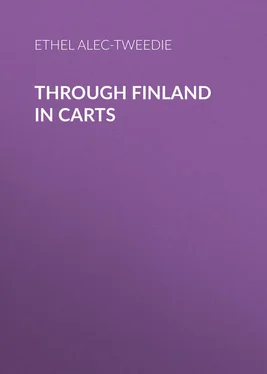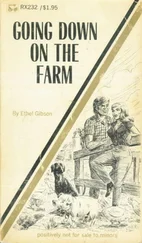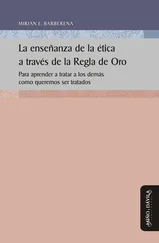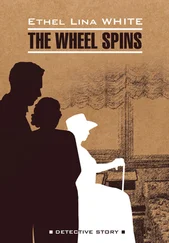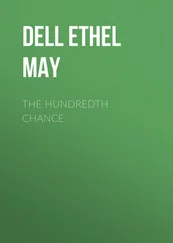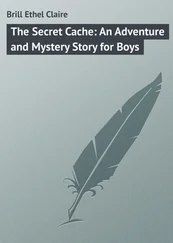Ethel Alec-Tweedie - Through Finland in Carts
Здесь есть возможность читать онлайн «Ethel Alec-Tweedie - Through Finland in Carts» — ознакомительный отрывок электронной книги совершенно бесплатно, а после прочтения отрывка купить полную версию. В некоторых случаях можно слушать аудио, скачать через торрент в формате fb2 и присутствует краткое содержание. ISBN: , Жанр: Путешествия и география, foreign_antique, foreign_prose, foreign_language, на английском языке. Описание произведения, (предисловие) а так же отзывы посетителей доступны на портале библиотеки ЛибКат.
- Название:Through Finland in Carts
- Автор:
- Жанр:
- Год:неизвестен
- ISBN:http://www.gutenberg.org/ebooks/27743
- Рейтинг книги:3 / 5. Голосов: 1
-
Избранное:Добавить в избранное
- Отзывы:
-
Ваша оценка:
- 60
- 1
- 2
- 3
- 4
- 5
Through Finland in Carts: краткое содержание, описание и аннотация
Предлагаем к чтению аннотацию, описание, краткое содержание или предисловие (зависит от того, что написал сам автор книги «Through Finland in Carts»). Если вы не нашли необходимую информацию о книге — напишите в комментариях, мы постараемся отыскать её.
Through Finland in Carts — читать онлайн ознакомительный отрывок
Ниже представлен текст книги, разбитый по страницам. Система сохранения места последней прочитанной страницы, позволяет с удобством читать онлайн бесплатно книгу «Through Finland in Carts», без необходимости каждый раз заново искать на чём Вы остановились. Поставьте закладку, и сможете в любой момент перейти на страницу, на которой закончили чтение.
Интервал:
Закладка:
The Finnish peasant women are as partial to pink cotton blouses as the Russian peasant men are to red flannel shirts, and the bright colours of the bodices, and the pretty white or black handkerchiefs over their heads, with gaily coloured scarves twisted round their throats, add to the charm of the Helsingfors market-place, where they sit in rows under queer old cotton umbrellas, the most fashionable shade for which appears to be bright blue.
The market is a feature in Finland, and in a measure takes the place of shops in other countries. For instance, waggons containing butcher's meat stand in rows, beside numerous carts full of fish, while fruit and flowers, cakes and bread-stuffs in trucks abound. Indeed, so fully are these markets supplied, it seems almost unnecessary to have any shops at all.
The old market folk all drink coffee, or let us be frank at once and say chicory, for a really good cup of coffee is rare in Finland, whereas chicory is grown largely and drunk everywhere, the Finlanders believing that the peculiar bitter taste they know and love so well is coffee. Pure coffee, brewed from the berry, is a luxury yet to be discovered by them.
As we drove along, we noticed at many of the street corners large and sonorous bells made of brass, and furnished with chains to pull them. We wondered what this might mean, and speculated whether the watchman went round and rang forth the hours, Doomsday fashion.
On asking information we were told —
"They are fire-bells, very loud, which can be heard at some distance."
"But does not a strong wind cause them to ring?"
"No; they must be pulled and pulled hard; but you had better not try, or you may be fined heavily."
So we refrained, and pondered over the fire-bells.
It is as necessary to have a passport in Finland as in Russia. But whereas in Russia a passport is demanded at once, almost before one has crossed the threshold of an hotel, one can stay in a Finnish town for three days without having to prove one's identity; any longer stay in a hotel or private house often necessitates the passport being sent to the police. It is a most extraordinary thing that a Finn should require a passport to take him in or out of Russia; such, however, is the case, and if a man in Wiborg wishes to go to St. Petersburg to shop, see a theatre, or to spend a day with a friend, he must procure a passport for the length of time of his intended visit. This is only a trifle; nevertheless it is a little bit of red-tapism to which the Finlander might object. But it may have its advantages, for the passport rigorously keeps anarchists, socialists, Jews, and beggars out of Suomi .
Until 1905, the press was severely restricted by the Censor, though not to the same extent as in Russia itself, where hardly a day passes without some paragraph being obliterated from every newspaper. Indeed, in St. Petersburg an English friend told us that during the six years he had lived there he had a daily paper sent to him from London, and that probably on an average of three days a week, during all that time, it would reach him with all political information about Russia stamped out, or a whole page torn away.
We ourselves saw eight inches blackened over in The Times , and about the same length in that day's Kölnische Zeitung and Independence Belge totally obliterated in Petersburg. We received English papers pretty regularly during our jaunt through Finland, and what amazed us most was the fact that, although this black mark absolutely obliterated the contents, no one on receiving the paper could have told that the cover had been tampered with in the least, as it always arrived in its own wrapper, addressed in the handwriting we knew so well. It remained an endless source of amazement to us how the authorities managed to pull the paper out and put it in again without perceptibly ruffling the cover.
It is not unknown for a Finnish paper, when ready for delivery, to have some objection made to its contents, in which case it must not be distributed; consequently, a notice is issued stating that such and such a paper has been delayed in publication, and the edition will be ready at a later hour in the afternoon. The plain meaning of which is that the whole newspaper has been confiscated, and the entire edition reprinted, the objectionable piece being taken out. Presshinder is by no means uncommon.
Unfortunately "a house divided against itself falleth," which is a serious hindrance to progress. That Suomi is divided, every one who has studied Finnish politics must know. With its Russian rule, its Finnish and Swedish proclivities, and its three languages, the country has indeed much to fight against.
For those who are interested in the subject of its Home Rule, an Appendix will be found at the end of this volume.
Very important changes have of late taken place in Finland. Less than half a century ago the whole country – at least the whole educated country – was still Swedish at heart and Swedish in language. From Sweden Finland had borrowed its literature and its laws until Russia stepped in, when the Finn began to assert himself. The ploughman is now educated and raising his voice with no uncertain sound on behalf of his own country and his language, and to-day the greatest party in the Parliament are the Social-Democrats.
The national air of Finland is Maamme or Vårt Land in Swedish ("Our Land").
The words were written by the famous poet, J. L. Runeburg, in Swedish, which was at that time the language of the upper classes, and translated into Finnish, the music being composed by Frederick Pacius. In Finnish the words are —
Oi maamme, Suomi, synnyinmaa, soi sana kultainen!
Ei laaksoa, ei kukkulaa, ei vettä rantaa rakkaampaa,
Kuin kotimaa tää pohjainen, maa kallis isien.
On Maamme köyhä, siksi jää jos kultaa kaipaa ken.
Sen kyllä vieras hylkäjää, mut meille kallein maa on tää
Kans' salojen ja saarien se meist' on kultainen.
Ovatpa meistä rakkahat kohinat koskien,
Ikuisten honkain huminat, täht' yömme, kesät kirkkahat
Kaikk', kaikki laulain loistaen mi lumes' sydämen.
Täss' auroin, miekoin, miettehin isämme sotivat,
Kun päivä piili pilvihin tai loisti onnen paistehin,
Täss' Suomen kansan suurimmat he vaivat kokivat.
Ken taistelut ne kaikki voi kertoilla kansan tään,
Kun sota laaksoissamme soi ja halla nälän tuskat toi?
Sen vert' ei mittaa yksikään ei kärsimystäkään.
Täss' on se veri vuotanut edestä meidänkin,
Täss' ilonsa on nauttinut ja tässä huoltain huokaillut
Se kansa, jolle muinoisin kuormamme pantihin.
Täss' olla meidän mieluist' on ja kaikki suotuisaa;
Vaikk' onni mikä tulkohon, meill' isänmaa on verraton.
Mit' oisi maassa armaampaa, mit' oisi kalliimpaa?
Ja tässä' täss' on tämä maa, sen näkee silmämme;
Me kättä voimme ojentaa, ja vettä, rantaa osoittaa,
Ja sanoa: kas tuoss on se, maa armas isäimme!
Jos loistoon meitä saatettais vaikk' kultapilvihin,
Miss' itkien ei huoattais' vaan tähtein riemun sielu sais,
Ois tähän kurjaan kotihin halumme kwitenkin.
Totunuden, runon kotimaa, maa tuhatjärvinen,
Elomme sulta suojan saa, sä toivojen ja muistoin maa,
Ain' ollos onnen vaihdellen, sä vapaa, riemuinen.
Sun kukoistukses' kuorestaan kerrankin puhkeaa;
Viel' lempemme saa nousemaan sun toivos, riemus loistossaan,
Ja kerran laulus' synnyinmaa, korkeemman kaiun saa.
Интервал:
Закладка:
Похожие книги на «Through Finland in Carts»
Представляем Вашему вниманию похожие книги на «Through Finland in Carts» списком для выбора. Мы отобрали схожую по названию и смыслу литературу в надежде предоставить читателям больше вариантов отыскать новые, интересные, ещё непрочитанные произведения.
Обсуждение, отзывы о книге «Through Finland in Carts» и просто собственные мнения читателей. Оставьте ваши комментарии, напишите, что Вы думаете о произведении, его смысле или главных героях. Укажите что конкретно понравилось, а что нет, и почему Вы так считаете.
